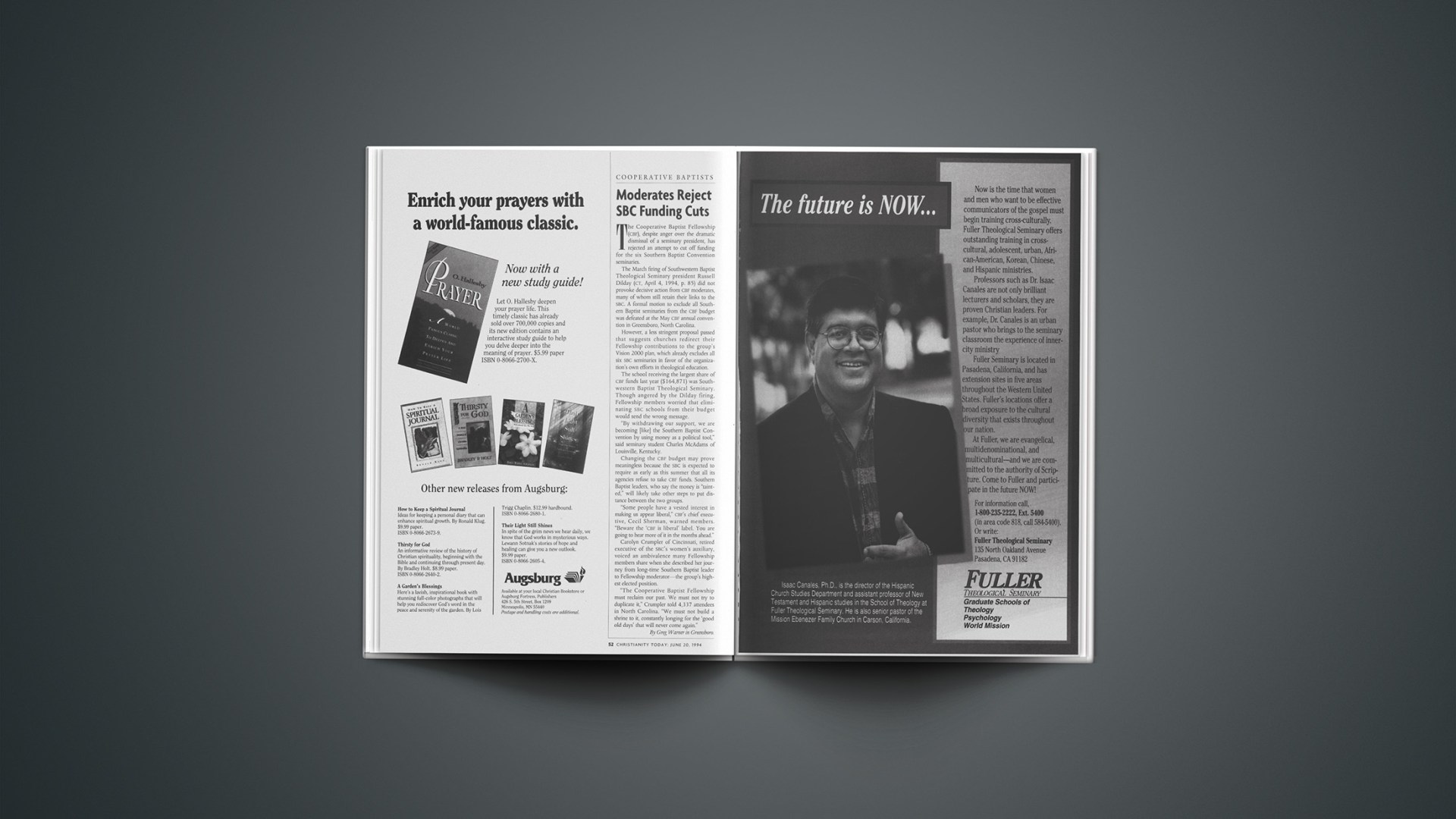The Cooperative Baptist Fellowship (CBF), despite anger over the dramatic dismissal of a seminary president, has rejected an attempt to cut off funding for the six Southern Baptist Convention seminaries.
The March firing of Southwestern Baptist Theological Seminary president Russell Dilday (CT, April 4, 1994, p. 85) did not provoke decisive action from CBF moderates, many of whom still retain their links to the SBC. A formal motion to exclude all Southern Baptist seminaries from the CBF budget was defeated at the May CBF annual convention in Greensboro, North Carolina.
However, a less stringent proposal passed that suggests churches redirect their Fellowship contributions to the group’s Vision 2000 plan, which already excludes all six SBC seminaries in favor of the organization’s own efforts in theological education.
The school receiving the largest share of CBF funds last year ($164,871) was Southwestern Baptist Theological Seminary. Though angered by the Dilday firing, Fellowship members worried that eliminating SBC schools from their budget would send the wrong message.
“By withdrawing our support, we are becoming [like] the Southern Baptist Convention by using money as a political tool,” said seminary student Charles McAdams of Louisville, Kentucky.
Changing the CBF budget may prove meaningless because the SBC is expected to require as early as this summer that all its agencies refuse to take CBF funds. Southern Baptist leaders, who say the money is “tainted,” will likely take other steps to put distance between the two groups.
“Some people have a vested interest in making us appear liberal,” CBF’s chief executive, Cecil Sherman, warned members. “Beware the ‘CBF is liberal’ label. You are going to hear more of it in the months ahead.”
Carolyn Crumpler of Cincinnati, retired executive of the SBC’s women’s auxiliary, voiced an ambivalence many Fellowship members share when she described her journey from long-time Southern Baptist leader to Fellowship moderator—the group’s highest elected position.
“The Cooperative Baptist Fellowship must reclaim our past. We must not try to duplicate it,” Crumpler told 4,337 attendees in North Carolina. “We must not build a shrine to it, constantly longing for the ‘good old days’ that will never come again.”
By Greg Warner in Greensboro.










